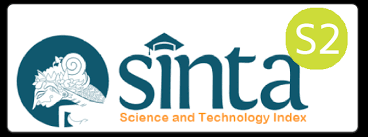Enhancing Mathematics Learning by Integrating Growth Mindset Principles in Ninth-Grade Supplementary Materials
Abstract
This paper determined the supplementary materials in ninth-grade mathematics which may be enhanced to integrate growth mindset principles to improve students’ procedural fluency and foster their growth mindset in mathematics. This study employed a descriptive-developmental method by administering a quasi-experimental design and mixed-method research approach to determine the research questions. The respondents in this study were the 60 ninth-grade students at a state secondary high school in the Philippines. The study implemented the validated researcher-made procedural fluency test and growth mindset questionnaire in determining students’ performance in procedural fluency and mindset in mathematics, respectively. Thematic analysis was employed to investigate students’ responses in Focus Group Discussions (FGD), informal interviews and learning journals in scrutinising the learning experiences and mindsets of the students. Findings displayed that the supplementary materials which can be developed in incorporating growth mindset principles were motivational activities, reflection activities, and instructional videos. Utilising the developed supplementary materials elevates students’ procedural fluency. It influences students to shift from fixed mindsets to growth mindsets in mathematics by providing them with significant learning experiences that help students enhance a growth mindset. Furthermore, the implementation group performed better than the comparison group, particularly with developing growth mindsets. The study results are limited to the participants encompassing; similar research employing the developed supplementary materials to other learning areas with a larger sample is recommended for more generalisable results.
Keywords
Full Text:
PDFReferences
Arthur, Y. D., Dogbe, C. S., & Asiedo-Addo, S. K. (2021). Enhancing performance in mathematics through motivation, peer assisted learning, and teaching quality: The mediating role of student interest. Eurasia Journal of Mathematics, Science and Technology Education, 18(2), em2072. https://doi.org/10.29333/ejmste/11509
Bautista, R. G. (2013). The students’ procedural fluency and written-mathematical explanation on constructed response tasks in physics. Journal of Technology and Science Education, 3(1) 49-56. http://dx.doi.org/10.3926/jotse.68
Berger, R. (2017). The importance of academic courage. Edutopia. Retrieved from www.edutopia.org/article/importance-academic-courage
Boaler, J. (2013). Ability and mathematics: The mindset revolution reshaping education, FORUM, 55(1), 143–152. https://doi.org/10.2304/forum.2013.55.1.143
BrainyQuote. (n.d.). Willie Nelson Quotes. Retrieved from https://www.brainyquote.com/quotes/willie_nelson_1 84361
BrainyQuote. (n.d.). Benjamin Spock Quotes. Retrieved from https://www.brainyquote.com/quotes/benjamin_ spock_1 00344
Briggs, S. (2015). 25 ways to develop a growth mindset. Retrieved from https://cpb-us-e1.wpmucdn.com/blogs.rice.edu/dist/9/4679/files/2020/12/opencolleges.edu_.au-25-Ways-to-Develop-a-Growth-Mindset.pdf
Campbell, S. (2017). 6 ways to develop growth mindset. Retrieved from www.entrepreneur.com/article/305335
Conley, A. K. (2014). Nurturing intrinsic motivation and growth mindset in writing. Edutopia. Retrieved from https://www.edutopia.org/blog/intrinsic-motivation-growth-mindset-writing-amy-conley
Department of Education. (2020). DepEd prepares self-learning modules for education’s new normal. Retrieved from https://www.deped.gov.ph/2020/07/02/deped-prepares-self-learning-modules-for-educations-new-normal/
Dudovskiy, J. (2017). Purposive sampling. Retrieved from https://research-methodology.net/sampling-in-primary-data-collection/purposive-sampling/
Dweck, C. S. (2006) Mindset: The new psychology of success. New York House Inc. Retrieved from https://iusd.org/sites/default/files/documents/mindsetquiz_module5.pdf
Elias, M. J. (2010). School climate that promotes student voice. Principal Leadership, 11(1), 22–27.
Gafoor, A., & Kurukkan, A. (2015). Why high school students feel mathematics difficult? An Exploration of affective beliefs [Paper presentation]. National Seminar on Pedagogy of Teacher Education, Trends and Challenges. Kozhikode, Kerala, India. Retrieved from https://eric.ed.gov/?id=ED560266
Gieras. (2020). How to create engaging instructional videos. Retrieved from https://www.edutopia.org/article /how-create-engaging-instructional-videos
Goodreads. (n.d.). Sarah Caldwell Quotes. Retrieved from shorturl.at/bhGTX
Gray, L. (2021) Reflective learning: Definition, style & theory. Retrieved from https://study.com/academy/lesson/reflective-learning-definition-style-theory.html
Harackiewicz, J. M., Smith, J. L., & Priniski, S. J. (2018). Interest matters: The importance of promoting interest in education. Retrieved from https://www.ncbi.nlm.nih.gov/pmc/articles/PMC5839644/
Inayah, S., Septian, A., & Suwarman, R. F. (2020). Student procedural fluency in numerical method subjects. Desimal: Jurnal Matematika, 3(1), 53–64. https://doi.org/10.24042/djm.v3i1.5 316
Le Cunff, A. (2022). From fixed mindset to growth mindset: the complete guide. Retrieved from https://nesslabs.com/growth-mindset
Malec, M. (2022). Why is learning important? A deep dive into the benefits of being a lifelong learner. Retrieved from https://www.learnerbly.com/articles/why-is-learning-important
Mazana, M. Y., Montero, C. S., & Casmir, R. O. (2019). Investigating students’ attitude towards learning mathematics. International Electronic Journal of Mathematics Education, 14(1), 207–231. https://doi.org/10.29333/iejme/3997
Masterson, L., & Koch, M. (2021). Obstacles to promoting a growth mindset in a streamed mathematics course: “It’s like confirming they can’t make the cut”. Investigations in Mathematics Learning, 13(3), 167–181. https://www.tandfonline.com/doi/abs/10.1080/19477503. 2021.1913382
McLeod, S. (2019). Constructivism as a theory for teaching and learning. Retrieved from https://www.simplypsychology.org/constructivism.html
McLeod, S. (2019). Zone of proximal development and scaffolding. Retrieved from https://www.simplypsychology.org/Zone-of-Proximal-Development.html
Mendoza, G. L., Caranto, L., & David, J. J. (2015) Effectiveness of video presentation to students’ learning. International Journal of Nursing Science, 5(2), 81–86. https://doi.org/10.5923/j.nursing.20150502.07
Mohapi. (2015). Factors affecting grade 12 learners’ performance in mathematics at Nzhelele East circuit: Vhembe District in Limpopo. Retrieved from http://uir.unisa.ac.za/bitstream/handle/10500/20245/dissertation_sinyosi_lb.pdf?sequence=1
National Council of Teachers of Mathematics (NCTM). (2014). Procedural fluency in mathematics. Retrieved from https://www.nctm.org/Standards-and-Positions/Position-Statements/Procedural-Fluency-in-Mathematics/
Picturequotes. (n.d.). Picturequotes.com. Retrieved from http://www.picturequotes.com/work-to-find-solutions-instead-of-always-highlighting-problems-quote-698909
Organisation for Economic Co-operation and Development (OECD). (2019). Program for International Student Assessment (PISA) Results from PISA 2018. Retrieved from https://www.oecd.org/pisa/publications/PISA2018_CN_PHL.pdf
Quotefancy (n.d.). Stephen Curry Quotes. Retrieved from https://quotefancy.com/quote/1016286/Stephen-Curry-Success-is-not-an-accident-success-is-actually-a-choice
Sun, K. (2015). There’s no limit: Mathematics teaching for a growth mindset. Graduate School of Education and the Committee on Graduate Studies of Stanford University. Retrieved from https://stacks.stanford.edu/file/druid:xf479cc2194/Sun-Dissertation-Upload-augmented.pdf
Simon, E. (2012). The impact of online teaching on higher education faculty’s professional identity and the role of technology: The coming of age of the virtual teacher. Retrieved from https://www.colorado.edu/atlas/sites/default/files/attached-files/the_impact_of_online_teaching _on_higher_education_faculty.pdf
Sharma, K. (2018). Effects of instructional videos and real-life mathematics activity and attitude in community college transitional mathematics course. Columbia Academic Commons. Retrieved from https://doi.org/10.7916/D84474DB
Weng, C., Puspitasari, D., Rathinasabapathi, A., & Kuo, A. (2021). Reflective learning as an important key to the success of an online course. Behavior & Information Technology. https://doi.10.1080/0144929X.2021.1988145
Williams, M. K. (2017). John Dewey in the 21st century. Journal of Inquiry and Action in Education, 9(1), 91–102. Retrieved from https://files.eric.ed.gov/fulltext/EJ1158258.pdf
DOI: https://doi.org/10.46517/seamej.v12i1.179
Refbacks
- There are currently no refbacks.
Indexed by:
Southeast Asian Mathematics Education Journal
SEAMEO Regional Centre for QITEP in Mathematics
Jl. Kaliurang Km 6, Sambisari, Condongcatur, Depok, Sleman
Yogyakarta, Indonesia
Telp. +62 274 889955
Email: seamej@qitepinmath.org
p-ISSN: 2089-4716 | e-ISSN: 2721-8546
Southeast Asian Mathematics Education Journal is licensed under a Creative Commons Attribution 4.0 International License
View My Stats
Supported by:




